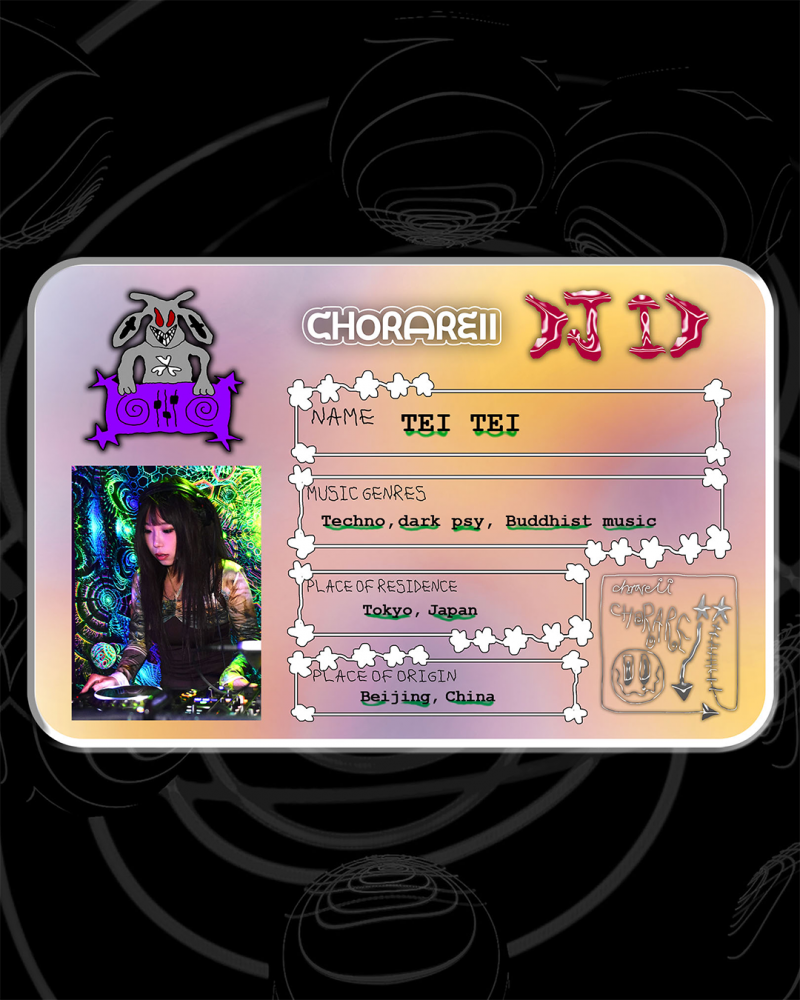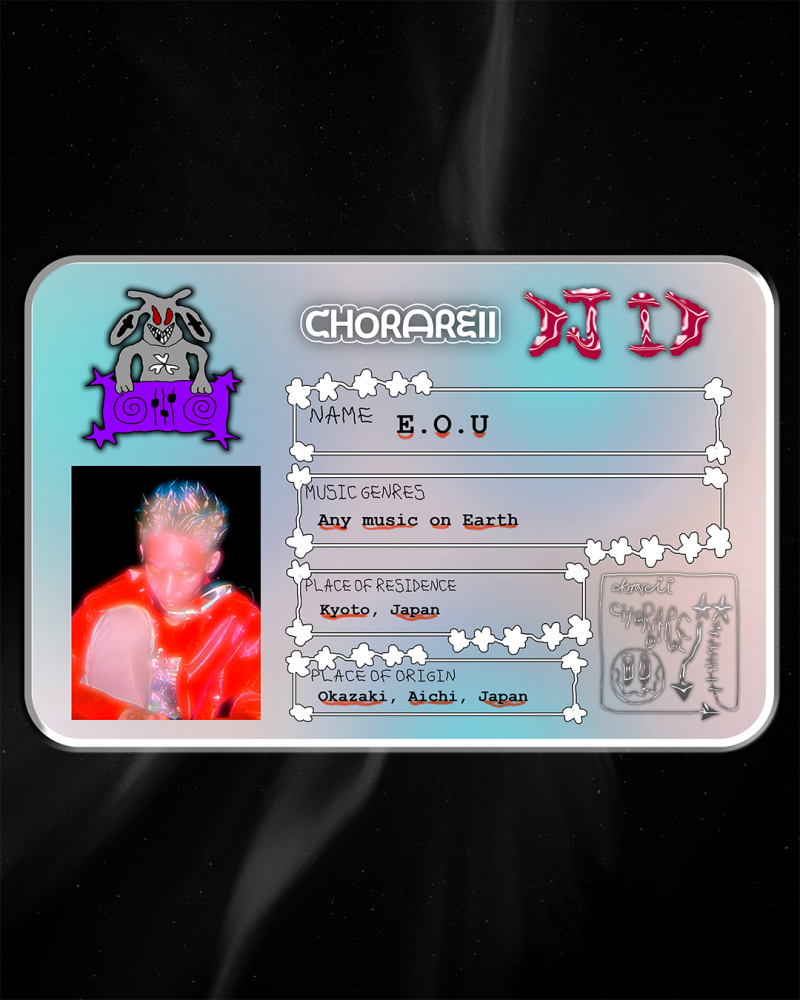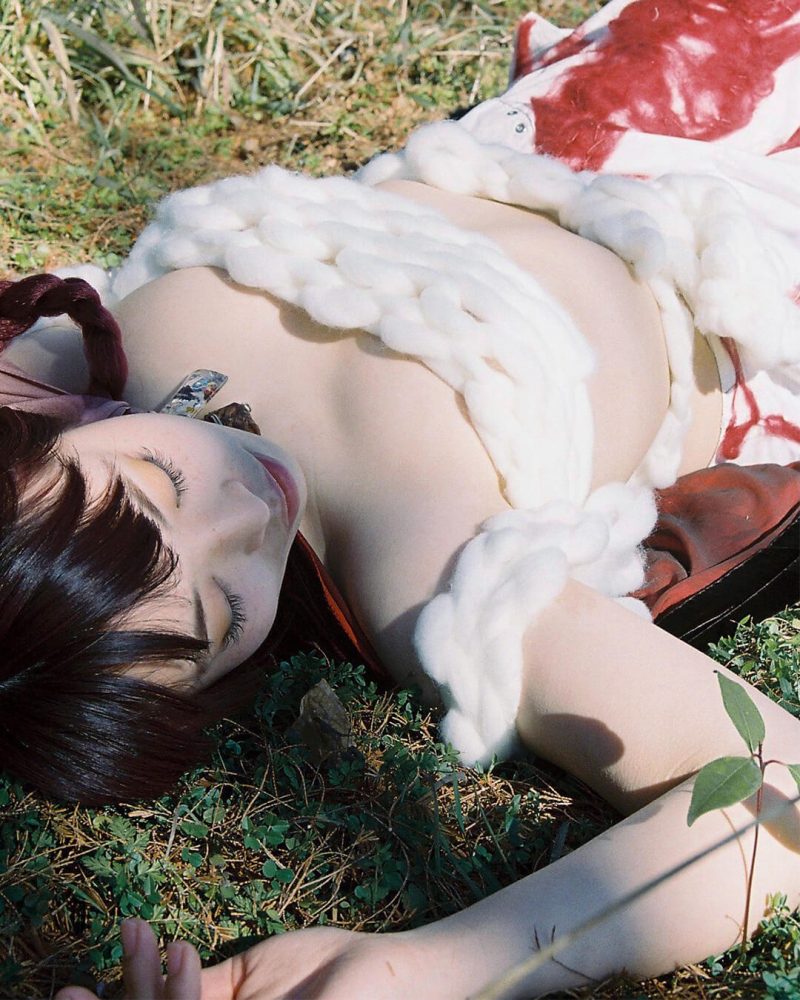
Waater is a band of five boys from Akita who in addition to a friendship since childhood, are united by having found in rock the way to express their vision of the world. Based on it, they decided to make rock against the current; with an open and conscious mind, allowing themselves to be influenced by all kinds of musical and artistic expressions. They understood that rock doesn’t have to be what it already was, rock has always been the way to do whatever you want.
Yuya Akiyama (Akiya, voice), Shion Hosobe (Sion, guitar), Taiki Yano (drums), Taisei Watanabe (bass), and Takashi Kudo (keys), in their twenties, are part of a generation more inclined to electronics or hip hop than to guitar music. Even today, especially for generations prior to theirs, this involves exclusive and fixed categories. Decide who you are, better not mix parties, outfits, or ways of feeling.
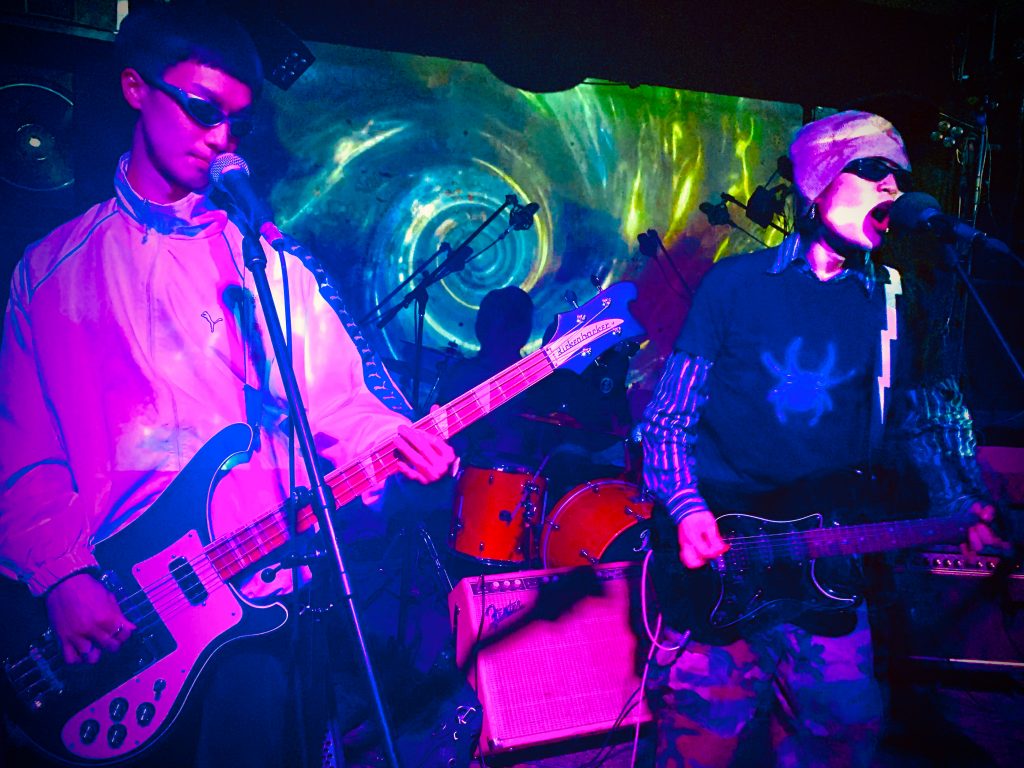
Waater represents the opposite with their influences; with the lineups of the parties and raves that they organize, and with their way of understanding the aesthetics that surround music. They reject labels because labels are limiting, and because they as a band, are much more than music. Of course, they’re not going to explain to you what they do in terms of genres and subgenres. The best you can do is *ahem* dive into their two albums; ‘Escapes’ (2019) and ‘Frozen’ (2020.) You should also check out their first EP ‘Waater’ (2018), and their most recent single ‘Liar / Naked Love.’ They’ve also made themselves visually and conceptually interesting videos for some of their songs.
Strength and nostalgia; momentum but hopelessness. Melancholy and contemplation. Wondering what we are all doing here, while harboring the desire for a world in which we are all one. Waater understands and captures the sentiment of their generation while challenging it. There is nothing more rock than all that.
They’re well versed in explaining for themselves, so I posed them these questions.
Chorareii: You formed Waater in 2017 to revive an underground music scene that you thought was dead. In 2021 and in the middle of a pandemic, how do you think the scene is? Has it gotten better, worse, changed?
Waater: In 2018 the indie-rock band scene was dead all over the world. In the midst of this situation, Waater was a very lonely band because our goals, how we sought to capture the audience live, our visuals, and our artworks were completely different.
We had to create a new scene for ourselves through rock. As the most active young people were focused on the club scene and hip hop, we decided to expand their scene by entering it from our position.
Taking into account the essence of various music scenes in Japan, we see that the situation has changed over the past three years, international scenes do not interest us much. We are not trying to do anything about it either. Today there are many ways to send information to the world, what matters to us now is to believe in what we do.
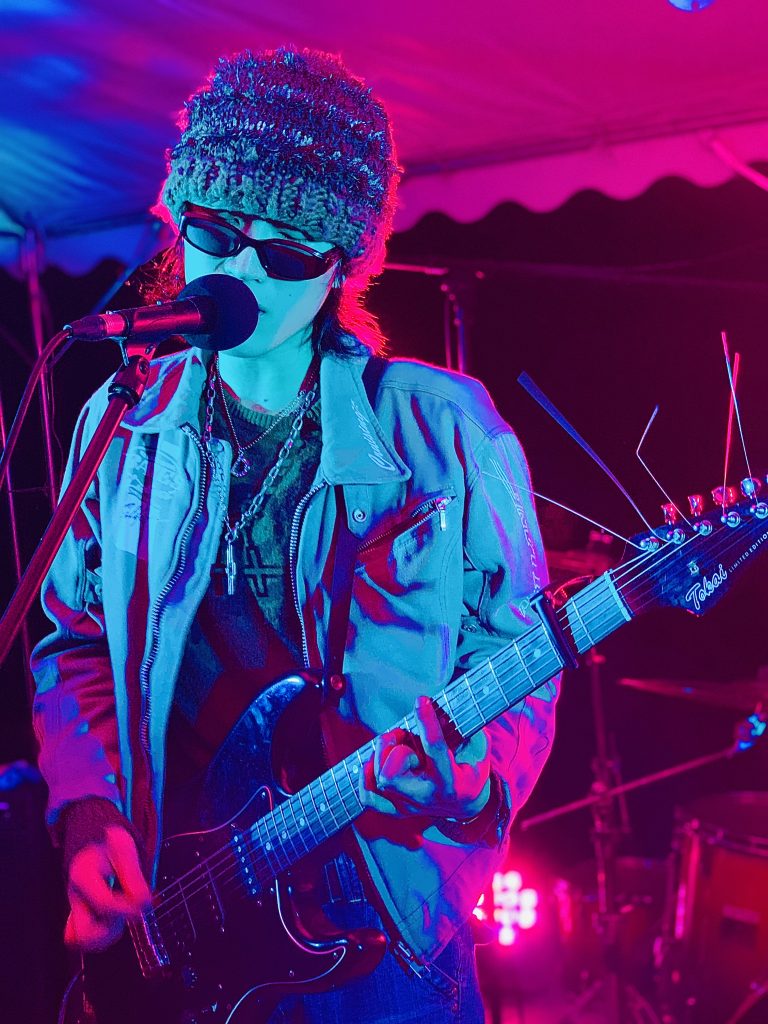
All the members of the band are from Akita, but Waater was formed in Tokyo. How have these two very different environments influenced the band?
Sion: Spending our teens in the snowy, rural landscapes of Akita has had a great influence on the perception of music, melody, and nostalgia in our sound. Capturing the beauty of the Earth we live on and the mystery of the universe in the form of art has always been important to us.
But in Akita there are no venues or clubs. Being active in Tokyo, we were able to feel the connection with the people and the empathy that music brings. This is very significant when it comes to creating culture.

At your parties or at the parties where you play, the lineup usually includes projects of very diverse genres. The ‘Pure2000’ rave that you organized from the Speed collective was also like that. What does being close to other styles of music bring you as a band?
Waater: Both Speed and Waater members don’t choose the music we listen to based on genre. Every day we are influenced by non-rock artists. That’s why we find it inspiring and interesting to play with artists from different genres. We hope that these types of events will increase to enrich the attendees who come to see a specific genre or artist.

Given this closeness you have with projects from other musical genres, have you ever thought of exploring other genres or mixing them with the type of music you do now?
Akiya: since we listen to what we consider interesting, regardless of genre, or whether it is current or old music; this influences us a lot when composing. However, rock has always been the music that we feel closest to.
Rock aesthetics is a respectable way to think about other cultures, and that form of expression inspires us. So I think that Waater is not just our music, but all the aspects that surround it, and this is something that many rock bands are not capable of transmitting. But we are not going to change this vision.
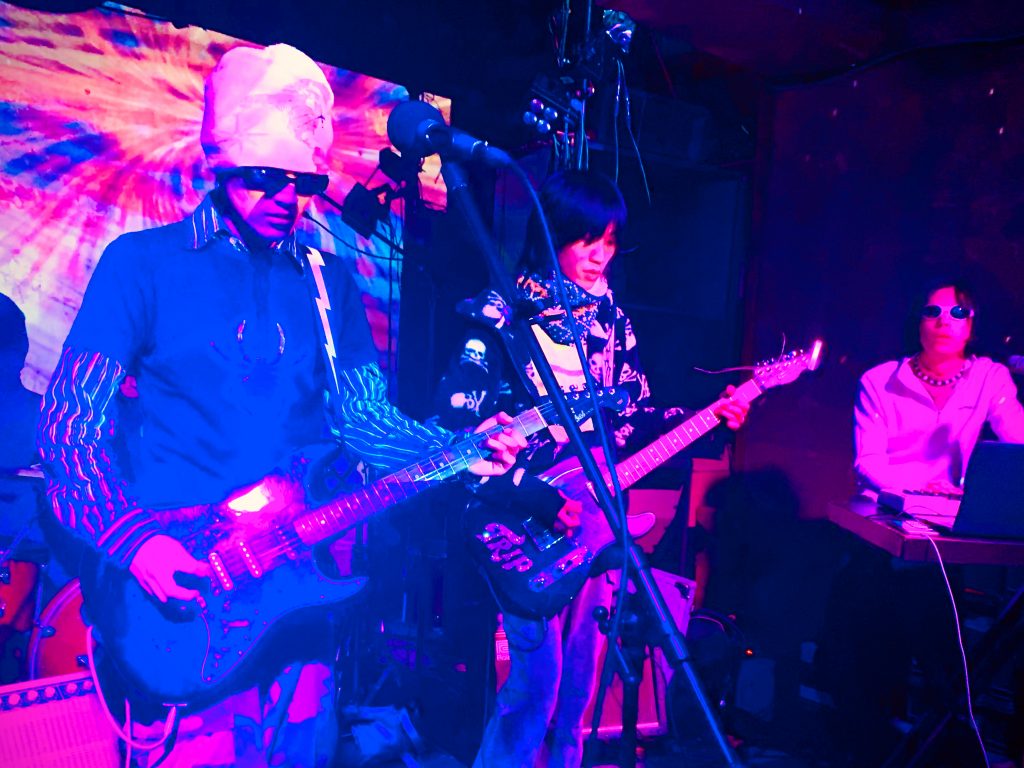
Your music is energetic, in your concerts it is common for mosh pits to form. But Waater’s songs also awaken a feeling of melancholy. I have been jumping and screaming in your mosh pits while deep emotions stirred inside me. Do you think that our generations, Z and millennials, are like that, dancing on the outside, crying on the inside? Do you feel that way?
Waater: We don’t know if everyone feels this way, but we think they do. Before Waater started, we went to a lot of concerts. It was a way of leaving our daily life behind, of getting rid of the limiters that held us back. In our daily lives, we are aware of the future and we feel depressed. There are many ways to enjoy live performances, but we believe that what we can achieve is to remove the limiters of each person to become one.

Fashion is an essential part of Waater. You have had appearances and collaborations in fashion outlets like Fashionsnap, and you are a style inspiration to many. What defines the aesthetics of the band?
Waater: We are very mindful of the balance and the character that comes when five people line up. Each of us wears the coolest clothes of today, being aware of the Japanese style within the field of rock.
Many bands sell their own merchandising at their concerts, but you usually sell second-hand clothes. How does this fit in with Waater’s philosophy?
Waater: We believe that people who come to see Waater will not buy something that replaces who they are. We did merchandise in the past, and we would sell it again if we could make something that we wanted to wear ourselves on a regular basis. If selling clothes at an event is a way of sharing our vision of the world, we believe that it is best to sell second-hand clothes chosen by us at a low price.

For the video of your song “What’s In My Head” you used 360 ° technology. How is your band’s relationship with technology and digital possibilities?
Sion: When it comes to music production, all of our music is recorded at home, so access to technology has benefited us. It is an important part of the production to always capture the atmosphere of the time based on this evolution of technology, but providing answers in our own way.
As for the video, we liked these types of new formats, so we did it ourselves with the desire to try and see if it was possible. We will continue to do so.
Recently, which artists or bands are influencing you the most? What do you listen to the most now, in 2021?
Sion: One artist who is inspiring us is Kenji Miyazawa. In his texts and his paintings, the passage of time in Tohoku and the richness of nature are conveyed with a unique melancholy.
As for these year’s releases, we are regularly listening to RSC’s album “RSD”. And also Sweet Trip’s 2003 album “Velocity: Design: Comfort.”
What are you working on right now?
Waater: This spring we will release a new single and a new video.
Listen to Waater on Spotify and Apple Music.
Watch their videos on YouTube.
And follow them on Instagram and Twitter.
Proofreading: Jasmina Mitrovic (@negi_hime).
。*:☆(・ω・人・ω・)。:゜☆。


